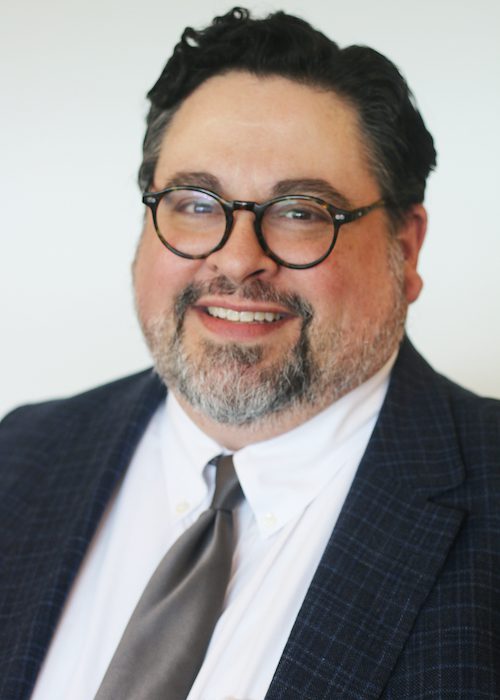
The finalists for WashingtonExec’s Pinnacle Awards were announced Oct. 8, and we’ll be highlighting some of them until the event takes place virtually Nov. 12.
Next in Healthcare Industry Executive of the Year finalist Steven Sousa, who’s a vice president at CGI Federal. Here, he talks key achievements, proud moments in his career and career advice.
What key achievements did you have in 2019/2020?
It’s been a busy few years for CGI’s health care practice, and I’m really proud of the progress we have made and the results our clients have experienced due to our digital modernization and emerging technology implementations, including artificial intelligence, robotics, machine learning, mobile platform development and more.
About a year ago, we started providing digital transformation support in partnership with the Chief Technology Office at a very large benefits delivery agency, testing multiple emerging technology incubation projects, and rolling out the agency’s first Robotic Process Automation implementation. That was pretty exciting — being able to be deliver “a first” for a client. But more importantly, I’m incredibly proud of the results.
I’m committed to helping health-focused agencies adopt cutting-edge technologies like AI that not only address the challenges of today, but those of tomorrow. Our goal at CGI is to ensure our country’s federal health care organizations are setting the standard, so throughout these past couple years, I’ve been pursuing a multiple-award contract vehicle with the Health and Human Services Program Support Center to provide consulting with technology, including AI and machine learning technologies, which the agency intends to implement over the next five years.
I led CGI’s HHS teams in modernizing mission-critical systems and delivering IT enhancements to ensure that the agency is ready to adopt innovative technologies and meet new legislative mandates. We integrated Blue Button 2.0 using the FHIR standard, delivered innovative IT that improves beneficiary experiences and led numerous cloud migration efforts.
What has made you successful in your current role?
Medicine and technology have always fascinated me, to the point where I wasn’t sure which path I wanted to pursue academically. But I think I ultimately chose right and found the perfect fit for me: I get to focus on what I excel in — technology — in a domain I’m passionate about — health care.
It’s rare that you get to truly enjoy what you’re doing or where you’re working on a daily basis. So my success really comes from an actual love and understanding of the difference our work makes in health care, especially for underserved populations.
How do you help shape the next generation of government leaders/industry leaders?
The knowledge gap, particularly in government right now, is alarmingly real and threatens every federal agency’s ability to continue executing their respective missions. Health care is one area in particular that simply cannot afford to fail, so for as hard as we work, it’s paramount that the next generation of government and industry leaders get hands-on, practical experience addressing challenges of national importance. The learning curve might be steep, but the consequences of not adequately preparing our younger generations are potentially devastating.
We need to nurture new leaders, encouraging them to actively engage in industry groups and the health care community. We can do that by actively participating in dialogues, as well as sharing our expertise and listening to them.
I’m proudly engaged in a number of different forums — from HMMS and ACT-IAC to NVTC and WashingtonExec to academia like Carnegie Mellon University. We all need to get out there and engage with our next generation of government and industry leaders — they’re our real legacy.
Looking back at your career, what are you most proud of?
I’m so proud of CGI’s success with civilian agencies, especially those focused on health and health benefits, and being able to deliver truly revolutionary solutions that have produced tangible results. But when I really reflect on what we’ve accomplished here, I am most proud of leading a team that has directly and positively impacted the lives of U.S. citizens.
And on top of that, our success has even transcended the health domain. The lessons we have learned and the expertise we have gained is being leveraged across multiple agencies so they can achieve similar — or even better —results. I really enjoy helping agencies modernize so they can provide better service for our nation in a more meaningful, user-centric way.
But overall, being a true partner for over 20 years, in a space where innovation and ROI remain at the forefront of our value proposition to these health agencies, it’s an honor to say that we’ve made an immense impact in helping health care succeed.
What’s your best career advice for those who want to follow in your footsteps?
You’re not always going to be the smartest person in the room, and you honestly don’t have to be to be successful. There is no shame in admitting what you don’t know, which is why the best leaders hire people smarter than them — people who can learn from themselves.
I read a quote by John Maxwell once that has stuck with me, “The best leaders are humble enough to realize their victories depend upon their people.” Translation: Surround yourself with the right people and there’s nothing you can’t accomplish.

